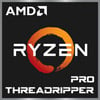
Apple M2 Max (38-GPU) Benchmark, Test and specs
Last updated:
The Apple M2 Max (38-GPU) is a 12 core processor. It can process 12 threads concurrently and is based on the 2. gen of the Apple M series series. The processor was released in Q1/2023. The Apple M2 Max (38-GPU) scores 1,874 points with one CPU core in the Geekbench 5 benchmark. When using all CPU cores, the result is 15,506 points.

| Name: | Apple M2 Max (38-GPU) |
|---|---|
| Family: | Apple M series (23) |
| CPU group: | Apple M2 (8) |
| Architecture: | M2 |
| Segment: | Mobile |
| Generation: | 2 |
| Predecessor: | Apple M1 Max (32-GPU) |
| Successor: | -- |
CPU Cores and Base Frequency
The 12 CPU cores of the Apple M2 Max (38-GPU) clock with 0.66 GHz (3.50 GHz). The number of CPU cores and the clock frequency of the processor are largely responsible for the overall performance.
| CPU Cores / Threads: | 12 / 12 |
|---|---|
| Core architecture: | hybrid (big.LITTLE) |
| A-Core: | 8x Avalanche |
| B-Core: | 4x Blizzard |
| Hyperthreading / SMT: | No |
|---|---|
| Overclocking: | No |
| A-Core Frequency: | 0.66 GHz (3.50 GHz) |
| B-Core Frequency: | 0.60 GHz (2.42 GHz) |
Artificial Intelligence and Machine Learning
Processors with the support of artificial intelligence (AI) and machine learning (ML) can process many calculations, especially audio, image and video processing, much faster than classic processors. Algorithms for ML improve their performance the more data they have collected via software. ML tasks can be processed up to 10,000 times faster than with a classic processor.
| AI hardware: | Apple Neural Engine |
|---|---|
| AI specifications: | 16 Neural cores @ 15.8 TOPS |
Internal Graphics
With the Apple M2 Max (38 Core), the Apple M2 Max (38-GPU) has an build in graphic solution. It has 608 SM processors, which have a total of 4864 texture shaders. The iGPU not only enables games, but also significantly accelerates video playback.
| GPU name: | Apple M2 Max (38 Core) |
|---|---|
| GPU frequency: | 0.45 GHz |
| GPU (Turbo): | 1.40 GHz |
| Compute units: | 608 |
| Shader: | 4864 |
| Hardware Raytracing: | No |
| Release date: | Q1/2023 |
| Max. displays: | 5 |
|---|---|
| Generation: | 2 |
| Direct X: | -- |
| Technology: | 5 nm |
| Max. GPU Memory: | 96 GB |
| Frame Generation: | No |
Hardware codec support
Processors that have an integrated graphics can play videos faster and more efficiently. This can have a positive effect on the battery life of notebooks, for example.
| h265 / HEVC (8 bit): | Decode / Encode |
|---|---|
| h265 / HEVC (10 bit): | Decode / Encode |
| h264: | Decode / Encode |
| VP8: | Decode |
| VP9: | Decode / Encode |
| AV1: | No |
|---|---|
| AVC: | Decode |
| VC-1: | Decode |
| JPEG: | Decode / Encode |
Memory & PCIeThe Apple M2 Max (38-GPU) supports up to 96 GB memory in up to 4 (Quad Channel) memory channels. This results in a maximum memory bandwidth of 409.6 GB/s. |
|
| Memory type: | Memory bandwidth: |
|---|---|
| LPDDR5-6400 | 409.6 GB/s |
| Max. Memory: | 96 GB |
| Memory channels: | 4 (Quad Channel) |
| ECC: | No |
| PCIe: | 4.0 x 32 |
| PCIe Bandwidth: | 63.0 GB/s |
Thermal ManagementWith the TDP, the processor manufacturer specifies the cooling solution required for the processor. The Apple M2 Max (38-GPU) has a TDP of 40 W. |
|
|---|---|
| TDP (PL1 / PBP): | 40 W |
| TDP (PL2): | -- |
| TDP up: | -- |
| TDP down: | -- |
| Tjunction max.: | 100 °C |
Technical details
The Apple M2 Max (38-GPU) has a 36.00 MB large cache. The processor is manufactured in 5 nm. Modern production increases the efficiency of the processor.
| Technology: | 5 nm |
|---|---|
| Chip design: | Chiplet |
| Socket: | -- |
| L2-Cache: | 36.00 MB |
| L3-Cache: | -- |
| AES-NI: | Yes |
| Operating systems: | macOS, iPadOS |
| Virtualization: | Apple Virtualization Framework |
|---|---|
| Instruction set (ISA): | Armv8.5-A (64 bit) |
| ISA extensions: | Rosetta 2 x86-Emulation |
| Release date: | Q1/2023 |
| Release price: | -- |
| Part Number: | -- |
| Documents: | Technical data sheet |
Rate this processor
Benchmark results

The benchmark results for the Apple M2 Max (38-GPU) have been carefully checked by us. We only publish benchmark results that have been created by us or that have been submitted by a visitor and then checked by a team member. All results are based on and fullfill our benchmark guidelines.
Cinebench 2024 (Single-Core)
The Cinebench 2024 benchmark is based on the Redshift rendering engine, which is also used in Maxon's 3D program Cinema 4D. The benchmark runs are each 10 minutes long to test whether the processor is limited by its heat generation.

|
AMD Ryzen 9 7900X
12C 24T @ 5.60 GHz |
||

|
AMD Ryzen 9 7900X3D
12C 24T @ 5.60 GHz |
||

|
Apple M2 Pro (12-CPU 19-GPU)
12C 12T @ 3.50 GHz |
||
|
|
Apple M2 Max (38-GPU)
12C 12T @ 3.50 GHz |
||

|
Apple M2 Max (30-GPU)
12C 12T @ 3.50 GHz |
||

|
AMD Ryzen 9 7950X3D
16C 32T @ 5.70 GHz |
||

|
Intel Core i9-13900F
24C 32T @ 5.60 GHz |
||
Cinebench 2024 (Multi-Core)
The Multi-Core test of the Cinebench 2024 benchmark uses all cpu cores to render using the Redshift rendering engine, which is also used in Maxons Cinema 4D. The benchmark run is 10 minutes long to test whether the processor is limited by its heat generation.

|
AMD Ryzen 9 3900X
12C 24T @ 4.60 GHz |
||

|
Apple M3 Pro (12-CPU 18-GPU)
12C 12T @ 4.06 GHz |
||

|
AMD Ryzen 7 7700
8C 16T @ 5.30 GHz |
||
|
|
Apple M2 Max (38-GPU)
12C 12T @ 3.50 GHz |
||

|
Apple M2 Max (30-GPU)
12C 12T @ 3.50 GHz |
||

|
Intel Core i7-12700F
12C 20T @ 4.90 GHz |
||

|
Intel Core i7-12700
12C 20T @ 4.90 GHz |
||
Cinebench R23 (Single-Core)
Cinebench R23 is the successor of Cinebench R20 and is also based on the Cinema 4 Suite. Cinema 4 is a worldwide used software to create 3D forms. The single-core test only uses one CPU core, the amount of cores or hyperthreading ability doesn't count.

|
Intel Core i5-1345U
10C 12T @ 4.70 GHz |
||

|
Intel Core i5-1340P
12C 16T @ 4.60 GHz |
||

|
Intel Core i5-1335U
10C 12T @ 4.60 GHz |
||
|
|
Apple M2 Max (38-GPU)
12C 12T @ 3.50 GHz |
||

|
Apple M2 Ultra (76-GPU)
24C 24T @ 3.50 GHz |
||

|
Apple M2 Ultra (60-GPU)
24C 24T @ 3.50 GHz |
||

|
Apple M2 Max (30-GPU)
12C 12T @ 3.50 GHz |
||
Cinebench R23 (Multi-Core)
Cinebench R23 is the successor of Cinebench R20 and is also based on the Cinema 4 Suite. Cinema 4 is a worldwide used software to create 3D forms. The multi-core test involves all CPU cores and taks a big advantage of hyperthreading.

|
Intel Core i7-11700K
8C 16T @ 4.50 GHz |
||

|
Intel Core i7-11700KF
8C 16T @ 4.50 GHz |
||

|
Intel Core i9-7900X
10C 20T @ 4.00 GHz |
||
|
|
Apple M2 Max (38-GPU)
12C 12T @ 3.50 GHz |
||

|
Apple M2 Max (30-GPU)
12C 12T @ 3.50 GHz |
||

|
Apple M2 Pro (12-CPU 19-GPU)
12C 12T @ 3.50 GHz |
||

|
AMD Ryzen Z1 Extreme
8C 16T @ 3.30 GHz |
||
Geekbench 5, 64bit (Single-Core)
Geekbench 5 is a cross plattform benchmark that heavily uses the systems memory. A fast memory will push the result a lot. The single-core test only uses one CPU core, the amount of cores or hyperthreading ability doesn't count.

|
Intel Core i9-11900K
8C 16T @ 5.30 GHz |
||

|
Intel Core i9-11900KF
8C 16T @ 5.30 GHz |
||

|
Intel Core i5-14500
14C 20T @ 5.00 GHz |
||
|
|
Apple M2 Max (38-GPU)
12C 12T @ 3.50 GHz |
||

|
Apple M2 Max (30-GPU)
12C 12T @ 3.50 GHz |
||

|
Apple M2 Pro (10-CPU 16-GPU)
10C 10T @ 3.50 GHz |
||

|
Apple M2 Pro (12-CPU 19-GPU)
12C 12T @ 3.50 GHz |
||
Geekbench 5, 64bit (Multi-Core)
Geekbench 5 is a cross plattform benchmark that heavily uses the systems memory. A fast memory will push the result a lot. The multi-core test involves all CPU cores and taks a big advantage of hyperthreading.

|
Intel Xeon Gold 5220R
24C 48T @ 2.40 GHz |
||

|
AMD Ryzen Threadripper PRO 3955WX
16C 32T @ 4.00 GHz |
||

|
Intel Xeon Gold 6238
22C 44T @ 2.60 GHz |
||
|
|
Apple M2 Max (38-GPU)
12C 12T @ 3.50 GHz |
||

|
Apple M2 Max (30-GPU)
12C 12T @ 3.50 GHz |
||

|
Apple M2 Pro (12-CPU 19-GPU)
12C 12T @ 3.50 GHz |
||

|
Intel Core i9-12900HX
16C 24T @ 2.30 GHz |
||
Geekbench 6 (Single-Core)
Geekbench 6 is a benchmark for modern computers, notebooks and smartphones. What is new is an optimized utilization of newer CPU architectures, e.g. based on the big.LITTLE concept and combining CPU cores of different sizes. The single-core benchmark only evaluates the performance of the fastest CPU core, the number of CPU cores in a processor is irrelevant here.

|
Intel Core i7-14650HX
16C 24T @ 5.20 GHz |
||

|
Intel Core i7-13850HX
20C 28T @ 5.30 GHz |
||

|
AMD Ryzen 9 7940HX
16C 32T @ 5.20 GHzNot verified |
||
|
|
Apple M2 Max (38-GPU)
12C 12T @ 3.50 GHz |
||

|
Apple M2 Ultra (76-GPU)
24C 24T @ 3.50 GHz |
||

|
Apple M2 Ultra (60-GPU)
24C 24T @ 3.50 GHz |
||

|
Apple M2 Max (30-GPU)
12C 12T @ 3.50 GHz |
||
Geekbench 6 (Multi-Core)
Geekbench 6 is a benchmark for modern computers, notebooks and smartphones. What is new is an optimized utilization of newer CPU architectures, e.g. based on the big.LITTLE concept and combining CPU cores of different sizes. The multi-core benchmark evaluates the performance of all of the processor's CPU cores. Virtual thread improvements such as AMD SMT or Intel's Hyper-Threading have a positive impact on the benchmark result.

|
AMD Ryzen 7 8700G
8C 16T @ 4.70 GHz |
||

|
AMD Ryzen 7 PRO 8700G
8C 16T @ 4.70 GHz |
||

|
AMD Ryzen 7 7800X3D
8C 16T @ 4.60 GHz |
||
|
|
Apple M2 Max (38-GPU)
12C 12T @ 3.50 GHz |
||

|
Apple M2 Max (30-GPU)
12C 12T @ 3.50 GHz |
||

|
Apple M2 Pro (12-CPU 19-GPU)
12C 12T @ 3.50 GHz |
||

|
Intel Core i5-13500
14C 20T @ 4.20 GHz |
||
iGPU - FP32 Performance (Single-precision GFLOPS)
The theoretical computing performance of the internal graphics unit of the processor with simple accuracy (32 bit) in GFLOPS. GFLOPS indicates how many billion floating point operations the iGPU can perform per second.

|
Apple M1 Ultra (64-GPU)
Apple M1 Ultra (64 Core) @ 1.30 GHz |
||

|
Apple M1 Ultra (48-GPU)
Apple M1 Ultra (48 Core) @ 1.30 GHz |
||

|
Apple M3 Max (16-CPU 40-GPU)
Apple M3 Max (40 Core) @ 1.40 GHz |
||
|
|
Apple M2 Max (38-GPU)
Apple M2 Max (38 Core) @ 1.40 GHz |
||

|
Microsoft XBox Series X
AMD Custom Radeon Graphics (XBox Series X) @ 1.83 GHz |
||

|
Apple M3 Max (14-CPU 30-GPU)
Apple M3 Max (30 Core) @ 1.40 GHz |
||

|
Apple M2 Max (30-GPU)
Apple M2 Max (30 Core) @ 1.40 GHz |
||
Estimated results for PassMark CPU Mark
Some of the CPUs listed below have been benchmarked by CPU-monkey. However the majority of CPUs have not been tested and the results have been estimated by a CPU-monkey’s secret proprietary formula. As such they do not accurately reflect the actual Passmark CPU mark values and are not endorsed by PassMark Software Pty Ltd.

|
Intel Core i9-10920X
12C 24T @ 4.40 GHz |
||

|
Intel Core i9-7940X
14C 28T @ 3.70 GHz |
||

|
Intel Xeon Gold 6242
16C 32T @ 3.40 GHz |
||
|
|
Apple M2 Max (38-GPU)
12C 12T @ 3.50 GHz |
||

|
Apple M2 Max (30-GPU)
12C 12T @ 3.50 GHz |
||

|
Apple M2 Pro (12-CPU 19-GPU)
12C 12T @ 3.50 GHz |
||

|
Intel Xeon W-3235
12C 24T @ 4.00 GHz |
||
CPU performance per watt (efficiency)
Efficiency of the processor under full load in the Cinebench R23 (multi-core) benchmark. The benchmark result is divided by the average energy required (CPU package power in watts). The higher the value, the more efficient the CPU is under full load.

|
Apple M3 Max (16-CPU 40-GPU)
24,028 CB R23 MC @ 57 W |
||

|
Apple M2 Pro (10-CPU 16-GPU)
12,125 CB R23 MC @ 30 W |
||

|
AMD Ryzen 7 7735HS
13,766 CB R23 MC @ 35 W |
||
|
|
Apple M2 Max (38-GPU)
14,855 CB R23 MC @ 40 W |
||

|
Apple M2 Pro (12-CPU 19-GPU)
14,855 CB R23 MC @ 40 W |
||

|
Apple M2 Max (30-GPU)
14,855 CB R23 MC @ 40 W |
||

|
Apple M2 Ultra (60-GPU)
28,570 CB R23 MC @ 80 W |
||
Performance for Artificial Intelligence (AI) and Machine Learning (ML)
Processors with the support of artificial intelligence (AI) and machine learning (ML) can process many calculations, especially audio, image and video processing, much faster than classic processors. The performance is given in the number (trillions) of arithmetic operations per second (TOPS).

|
Apple A15 Bionic (4-GPU)
6C 6T @ 3.23 GHz |
||

|
Apple A15 Bionic (5-GPU)
6C 6T @ 3.23 GHz |
||

|
Apple M2
8C 8T @ 0.66 GHz |
||
|
|
Apple M2 Max (38-GPU)
12C 12T @ 0.66 GHz |
||

|
Qualcomm Snapdragon 870
8C 8T @ 3.20 GHz |
||

|
Samsung Exynos 990
8C 8T @ 2.73 GHz |
||

|
Qualcomm Snapdragon 865+
8C 8T @ 3.10 GHz |
||
Benchmarks

Cinebench 2024 (SC)
272 entries
272 entries

Cinebench 2024 (MC)
271 entries
271 entries

Cinebench R23 (SC)
586 entries
586 entries

Cinebench R23 (MC)
565 entries
565 entries

Geekbench 5 (SC)
2,488 entries
2,488 entries

Geekbench 5 (MC)
2,461 entries
2,461 entries

Geekbench 6 (SC)
1,755 entries
1,755 entries

Geekbench 6 (MC)
1,703 entries
1,703 entries

FP32 SP (iGPU)
2,026 entries
2,026 entries

PassMark CPU-Mark
2,392 entries
2,392 entries

CPU performance per watt (efficiency)
109 entries
109 entries

AI / ML Performance
116 entries
116 entries
Description of the processor
The name of the Apple M2 Max (38 GPU) alone provides a lot of information. Developed in-house by Apple, it comes from the second generation of its own processors, which are used in all current iMacs, Mac Minis and iPads. The addition "38-GPU" is necessary because the same processor is also available with 30 GPU cores.The processor is built on a hybrid big.LITTLE structure consisting of 8 performance cores called Avalanche and 4 efficiency cores called Blizzard. The performance cores clock at a maximum of 3.50 gigahertz and the maximum clock frequency of the efficient cores is 2.80 gigahertz. Like all Apple processors, the Apple M2 Max (38 GPU) does not support hyperthreading, which means that CPU cores and computing threads are both at 12.
The internal graphics unit of the Apple M2 Max (38-GPU) has a maximum clock frequency of 1.40 gigahertz and consists of 608 execution units and 4864 shader units. The graphics unit achieves an FP32 computing power (single precision) of 13490 GigaFLOPS. In the Apple universe, when the processor appeared in the first quarter of 2023, only the graphics unit of the Apple M1 Ultra was more powerful.
The graphics unit can decode and encode the following codes: HEVC 8/10 bit, H.264, VP9, JPEG. The video codecs VP8, AVC and VC-1 can only be decoded. Hardware encoding of AV1 codec is not supported by Apple M2 Max (38 GPU).
The main memory is integrated in the processor, so the size must be selected when purchasing the device. How much memory you can install depends on the end device, but a maximum of 96 gigabytes of RAM can be selected. The Apple M2 Max (38 GPU) has 4 memory channels and thus achieves a bandwidth of 409.6 GB/s. For comparison: With the currently (Q1/2023) fastest Intel i9 processor, not even a quarter of the bandwidth is achieved.
Popular comparisons
back to index




